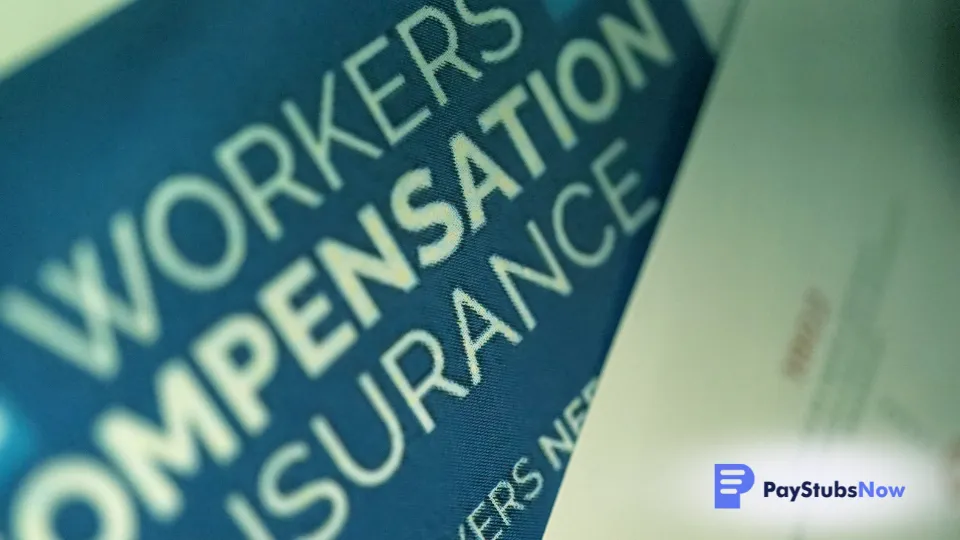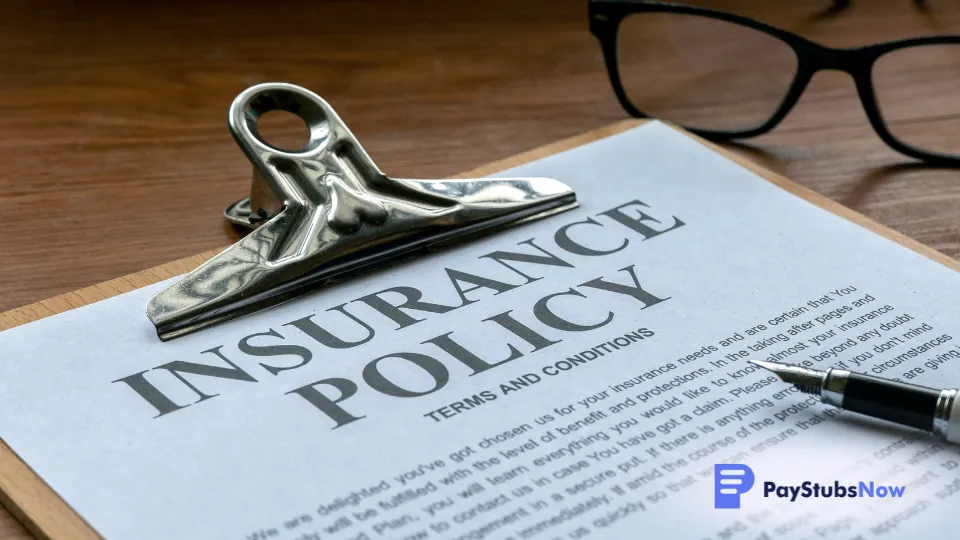Small Business Insurance Requirements: Policies to Consider
Managing a small business requires a solid understanding of financial principles, operational processes, and the various aspects of business ownership. Navigating the complexities of business insurance is equally crucial, as it plays a vital role in safeguarding your enterprise.
Regardless of the type of business you operate—be it an online venture, a service-oriented company, or any other model—ensuring adequate insurance coverage is essential for protecting your investment and ensuring long-term success.
This article provides a comprehensive overview of essential small business insurance requirements, highlighting their importance in safeguarding your assets, complying with legal requirements, and mitigating potential risks.
Main Takeaways From This Article:
- Small businesses need insurance for asset protection, legal compliance, and risk mitigation.
- State regulations, industry standards, employer obligations, and client contracts can influence insurance requirements.
- Essential policies include general liability, professional liability, workers' compensation, commercial auto, business interruption, property, cyber, product liability, business income, and umbrella insurance.
- Consider risk assessment, coverage options, consultations with professionals, and regular policy reviews when choosing insurance.
- Common mistakes to avoid include underinsurance, policy misunderstandings, neglecting annual reviews, and overlooking industry-specific needs.
Why Small Businesses Need Insurance

For a small business, financial stability is paramount. Unexpected events like lawsuits, employee injuries, or property damage can cripple its operations. Insurance acts as a financial safety net, safeguarding the business in several key ways:
Protecting Assets
Insurance policies can cover the costs of replacing or repairing damaged property, compensating for customer or employee lawsuits, and providing financial support during business interruptions. This financial buffer prevents unforeseen incidents from draining your company's resources.
Legal Compliance
Many states mandate certain insurance coverage for businesses, particularly regarding workers' compensation. Carrying the required insurance ensures you comply with legal requirements and avoid potential penalties.
Mitigating Risks
Even seemingly minor incidents can have significant financial repercussions. Insurance transfers the financial burden associated with risks like employee injuries, property damage, or customer lawsuits to the insurance company. This mitigates potential losses and allows you to focus on core business activities.
Understanding Small Business Insurance Requirements
Understanding your specific insurance needs requires a careful approach. Let's look at the factors that influence a small business's insurance requirements.
State Regulations
Each state has its own set of regulations regarding mandatory insurance coverage for businesses. This may include workers' compensation insurance, unemployment insurance, or disability insurance. It's crucial to research your state's specific requirements.
Industry Regulations
Certain industries may have additional insurance requirements mandated by professional associations or licensing bodies. For example, a construction company might need specialized liability insurance for specific project types.
Employer Obligations
As an employer, you have a legal responsibility to provide a safe work environment. Workers' compensation insurance helps fulfill this obligation by covering medical expenses and lost wages in case of employee injuries on the job.
Client Contracts
Some clients may also require certain insurance coverage from your business. The exact coverage required will depend on the nature of your business and the nature of the client's needs, so it's important to read all client contracts carefully. For example, a consulting firm might need to carry professional liability insurance to work with a certain client.
By ensuring that you have the necessary insurance coverage to meet the requirements of your clients, you'll be able to work with a wider range of companies and have greater access to potential clients.
Essential Policies for Small Businesses

Small businesses use a variety of insurance policies to protect themselves from various risks and ensure long-term success. Here are some of the most essential policies to consider:
General Liability Insurance
This policy gives broad coverage and protects your business from common risks such as bodily injury, property damage, and personal injury to third parties. For example, if a customer slips and falls on your premises or your business is accused of negligence, general liability insurance can help cover legal costs and settlements.
Professional Liability Insurance (Errors & Omissions)
This policy is essential for businesses providing professional services such as consulting, legal advice, accounting, or architecture. It offers protection against claims of negligence, errors, or omissions in your work.
For example, if a client alleges that your services were faulty, leading to financial losses or other damages, professional liability insurance can cover legal costs, settlements, and judgments associated with such claims, safeguarding your business from potential financial ruin.
Workers’ Compensation Insurance
In most states, this insurance is mandatory. It provides crucial coverage for employees injured on the job, including medical expenses, lost wages, and rehabilitation costs. By providing this coverage, you fulfill your legal obligations as an employer, demonstrate a strong commitment to the safety and well-being of your employees, and protect your business from costly lawsuits.
Commercial Auto Insurance
If your business uses vehicles for deliveries, employee transportation, or other business purposes, you will need commercial auto insurance to cover your business in the event of property damage or injury caused by your company vehicles.
Having commercial auto insurance on your company vehicles can protect your business if you or your employees are involved in an accident while behind the wheel.
Business Interruption Insurance
This policy provides financial support to your business during periods of disruption, including a fire, natural disaster, or other unforeseen events. It can cover lost income, ongoing expenses, and even extra costs incurred during the recovery process.
Commercial Property Insurance
Commercial property insurance protects your business from property damage from a wide variety of causes, including fire, theft, vandalism, and natural disasters. This protection includes your buildings, equipment, and inventory.
Cyber Liability Insurance
Many businesses rely on digital tools, technology, and the Internet to conduct business. This reliance makes them more vulnerable to cyberattacks that can lead to significant financial losses.
Data breaches, system failures, and cyber extortion are just a few of the problems that cybercriminals can inflict on businesses. For these reasons, cyber liability insurance is a must for every business to consider.
Product Liability Insurance
This policy protects businesses from lawsuits arising from injuries or damages caused by their products. It covers legal costs, settlements, and judgments related to product defects, including design flaws, manufacturing errors, and inadequate warnings.
Business Income Insurance
This coverage provides financial support to businesses during periods of interruption, such as after a fire, natural disaster, or other unforeseen events. It helps cover ongoing expenses like rent, utilities, and employee salaries when income is disrupted.
Commercial Umbrella Insurance
This policy exists to provide extra liability coverage beyond the limits of your primary general liability and other liability policies. It acts as a safety net for significant lawsuits that could exceed your primary policy limits, offering broader protection and peace of mind.
Business Owner's Policy (BOP)
This package policy combines several essential coverages, such as general liability, property insurance, and business interruption insurance, into a single, convenient policy. BOPs are often a cost-effective option for many small businesses.
How to Choose the Right Insurance Policies

Choosing the wrong insurance coverage can be as costly as having no insurance coverage at all. When selecting insurance coverage for your business, consider the steps below to find the right fit.
Assess Risks
Begin by conducting a thorough risk assessment. Identify potential threats to your business, such as property damage, employee injuries, customer lawsuits, cyberattacks, and data breaches. Consider the potential severity and frequency of these risks.
Understand Coverage Options
Delve into the specifics of each policy and ask questions such as:
- What is covered?
- What is the amount of coverage provided?
- Are there any exclusions or limitations that may be applicable?
Coverage options can vary widely, and they may include different types of liabilities, property damage, business interruption, and more. By thoroughly analyzing each option, you can tailor the coverage to meet your business's unique needs and avoid paying for extraneous features that do not apply to your operation.
Consult Professionals
To fully understand coverage options, engaging with an insurance professional can be beneficial. These experts can provide insights into the nuances of various insurance products, including bundled options like a BOP, which combines multiple coverages into a single package.
Review Regularly
Review your insurance policies regularly to ensure they continue to meet your evolving needs. Reevaluate your risk assessment periodically and adjust your coverage accordingly. This proactive approach ensures that your business remains adequately protected as it grows and changes.
Mistakes to Avoid with Business Insurance

Making informed decisions about your business insurance is crucial. Here are some common mistakes to avoid:
Underinsuring the Business
Underestimating your business's potential liabilities can have devastating financial consequences. Let's say your company is involved in a serious accident that results in a significant lawsuit.
If your liability insurance coverage is insufficient to cover the damages awarded, you may be personally liable for the remaining costs. This could lead to the depletion of your personal savings, the seizure of personal assets, and even bankruptcy. Choosing adequate coverage levels is crucial to protect both your business and your personal finances.
Failing to Understand Policies
Thoroughly understanding the intricacies of your insurance policies is paramount. This includes carefully reading the policy documents, clarifying any ambiguities with your insurance agent, and understanding the specific terms, conditions, and exclusions. Failing to do so can result in unexpected coverage gaps.
For example, you might assume a particular type of loss is covered, only to discover during a claim that it is explicitly excluded from your policy. This can leave your business exposed to significant financial losses and create unnecessary stress during challenging times.
Not Reviewing Policies Annually
Business operations are dynamic and constantly evolving. New risks may emerge, while others may diminish in significance. Similarly, industry regulations and legal landscapes are subject to change. Failing to conduct annual policy reviews can leave your business inadequately protected.
Regularly reviewing your policies allows you to:
- Identify and address any emerging risks
- Adjust coverage limits to reflect changes in your business operations
- Take advantage of potential discounts or policy enhancements
- Ensure compliance with any new regulations or industry-specific requirements
Neglecting Industry-Specific Needs
Some industries have unique and complex insurance requirements. For example, construction companies may need specialized liability insurance to cover the risks associated with specific project types, such as high-rise buildings or complex infrastructure projects.
Healthcare providers may require malpractice insurance to protect them from claims of medical negligence. Failing to address these industry-specific needs can leave your business exposed to significant risks and potential legal liabilities, jeopardizing its long-term success.
Protect Your Business With Accurate Financial Documentation through Paystubsnow
Timely and accurate financial reporting is key to making sure your business stays on track with insurance rules. When your financial records are in order, this ensures compliance with those rules. The payroll and financial documentation templates offered by Paystubsnow can greatly boost your compliance efforts by:
- Generating Accurate and Compliant Pay Stubs: Pay stubs provide essential information for calculating workers' compensation premiums and ensuring compliance with relevant labor laws.
- Producing Year-End Tax Forms: Year-end tax forms with accurate tax calculations are essential for paying various employment taxes, including payroll and unemployment taxes.
By leveraging Paystubsnow's solutions, businesses can reduce their administrative workload, minimize compliance risks, and improve financial accuracy in their payroll records. In short, our platform can be a valuable asset in helping your business maintain relevant insurance and regulatory requirements.

